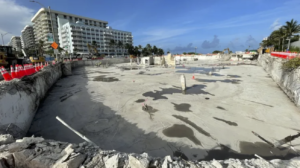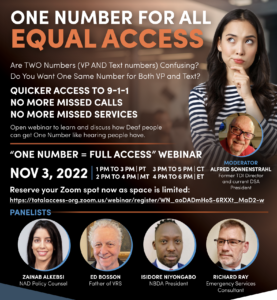by Margie Zable Fischer / July 5, 2021 / Money and Policy
The Surfside condo tragedy signals the need to get this vital information
We are all horrified about the Surfside, Fla. condo collapse, and our hearts go out to families and friends of the victims. This type of tragedy is, thankfully, uncommon, but does bring up an important question: How can you know if your retirement condo building is safe and the ways to evacuate in an emergency?
Of course, there’s no way to guarantee the safety of condominiums, and it will likely take many months to determine the cause or causes of the Surfside disaster. But this incident shows why current and prospective high-rise condo unit owners need to learn about potential safety problems and actions to prevent them.
The best place to start: the Condominium Owners’ Association (COA).
“A Condominium Owners’ Association is required for every condominium building in the United States,” says Richard Swerdlow, a South Florida-based attorney, and owner of Condo.com portal. “COAs typically require residents to pay a monthly or quarterly maintenance fee and will occasionally assess one-time charges to cover large community expenses and repair projects beyond funds held in reserve.”
The association is made up of a volunteer board of directors who are owners and are elected by the units’ owners. The board is in charge of managing the association’s finances and hiring people and companies to repair, clean and maintain the community. It’s governed by the association’s rules and regulations.
What to Ask the Condo Owners’ Association
Michele Bellisari, a Realtor with Real Broker in Boca Raton, Fla., says that Realtors typically provide prospective buyers with current condo documents, including the most recent budget and financial statements, association rules and regulations and — in many cases — a seller disclosure.
But condo buyers and owners can also request the following information from the Condominium Owners’ Association:
- Past building inspection reports and engineering reports
- Notes from COA meetings to determine potential issues and repair needs
- The history of assessments (one-time special fees residents pay for major repairs and renovations); what the assessments were used for and if there are assessments coming up
- Whether and when the concrete restoration has been done; elevators have been replaced or repaired and balconies have been replaced or repaired
- Whether the building has gone through or is getting ready to go through, a recertification process
- Whether the board considers the amount of money in reserves (collected from association fees) is adequate to cover repairs, replacements, and emergency repairs and whether a reserve study has been done in the last three years — otherwise, assessments may need to be levied on condo owners
Gaining this knowledge will help you determine any areas that need to be repaired or replaced, as well as the funding available (or needed) to make them.
It’s All (or Often) About the Money
But the reality is that when you have a group of people (such as a condo board) deciding on whether to pay for repairs, you can have different opinions. That can ultimately affect the condo building’s safety.
According to a July 1, 2021 New York Times article, disagreements among the Surfside building’s condo owners may have played a part in the tragedy.
“For years before the partial collapse of the Champlain Towers South complex near Miami, the condo board wrestled with how to come up with the $15 million needed to fix the building’s dilapidated roof, a poorly designed pool deck and crumbling support columns.”
The problem, The Times article explained: “The homeowners’ association had just $800,000 in reserves, and getting the work done meant asking residents to shoulder huge special assessments ranging from $80,000 to $200,000 on each home. No one was eager to pay.”
It’s frequently an issue with condominium buildings.
Setting Reserves, Just in Case
In fact, The Times said, only about 10 states require associations to determine how much money they’ll need for future big-ticket items and many states don’t require condo boards to maintain big reserves.
Mike Pappas, CEO of the Miami-based real estate brokerage The Keyes Company, says that, “while state laws, such as those in Florida, may require associations to set aside reserves for common types of repairs, such as pavement resurfacing and roof replacements, many associations don’t keep enough in their reserves to make necessary repairs, let alone unexpected ones.”
Beachfront properties also have extra expenses due to the elements wreaking havoc on rebar and steel, Pappas says. Even air conditioning units can get corroded with rust.
While beachfront condo buildings have some particular safety concerns, all condo buildings, wherever they’re located, have potential issues.
But some states and cities are stricter about safety inspections than others.
Condo Safety Rules Vary Dramatically
According to The Miami Herald, California and New York mandate foundation inspections every five years, while Florida has no requirement to check beneath the surface, only to do a visual inspection.
 Just two counties in Florida (Miami-Dade, where Surfside is located, and Broward) require high rises to go through a reinspection process after they reach 40 years of age.
Just two counties in Florida (Miami-Dade, where Surfside is located, and Broward) require high rises to go through a reinspection process after they reach 40 years of age.
The bottom line for prospective condo buyers: You may want to consider the type and frequency of required inspections before purchasing.
Condominium experts suggest taking the following three steps to become more informed and confident about the safety of the condo you live in or one you might buy:
1. Learn how to evacuate your condo quickly in the case of an emergency. Pappas says that condo buildings are required to have two exits and two stairwells on each floor. You may also be able to locate windows that can open so you can exit from them.
2. Gather information about repair and maintenance issues, as well as association fees and special assessments. If you have concerns, raise them with the condo board. And if you live in a condo building, consider running for the board in the next election or bringing these issues to the attention of other tenants.
3. Hold tight. It’s likely that the Surfside tragedy will lead to additional rules and regulations that could make condo buildings safer. Cities and states may adopt stricter regulations than they have or enact new ones to ensure the safety and security of condo owners.
And the Community Association Institute may soon require homeowner communities to commission expert studies in order to assess how much money they need in reserves. It might even require setting minimum reserve amounts.
Finally, there may come a point where you feel really uncomfortable about a condo building’s safety. If you haven’t purchased a unit yet, choose another place to buy. If you already live in the building, consider moving.
While those options may seem excessive, peace of mind is priceless.



